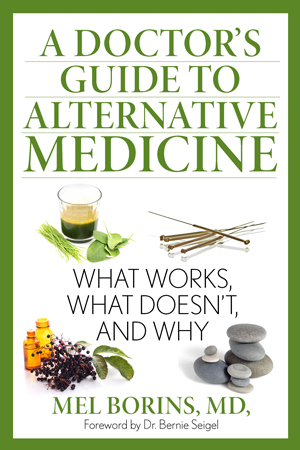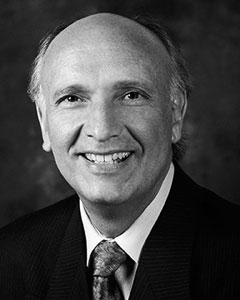Pronoia: Attitudinal Change, Love and Spirituality
ABSTRACT
 Pronoia is the opposite of paranoia. It is the belief that the universe is plotting to make you happy and that there is nothing you can do about it. Having a positive attitude is an important aspect of healing and optimism is an important predictor of disease resilience. Many of us have had peak experiences or moments in our lives when we felt at one with ourselves and the world around. By examining how we achieved these moments of enhanced awareness we can work toward re-capturing this sense of oneness. Love, an essential part of pronoia, is a powerful emotion and is also a component of unconditional regard, empathy and compassion. Pronoia is an important element in our personal lives and in therapeutic relationships.
Pronoia is the opposite of paranoia. It is the belief that the universe is plotting to make you happy and that there is nothing you can do about it. Having a positive attitude is an important aspect of healing and optimism is an important predictor of disease resilience. Many of us have had peak experiences or moments in our lives when we felt at one with ourselves and the world around. By examining how we achieved these moments of enhanced awareness we can work toward re-capturing this sense of oneness. Love, an essential part of pronoia, is a powerful emotion and is also a component of unconditional regard, empathy and compassion. Pronoia is an important element in our personal lives and in therapeutic relationships.
Key words: pronoia, paranoia, happiness, joy, love, peaceful, oneness, attitudinal healing
Published Sept 2011 The International Journal Of Healing And Caring, volume 11; number 3
PRONOIA: FROM PARANOIA TO FEELING GOOD
Fred Goldner (1982) coined the term ”pronoia” to describe people who believe that other people are more positive about them than they are assumed to be.
Pronoia is the opposite of paranoia. It is the belief that the universe is plotting to make you happy and that there is nothing you can do about it. When you enter this pronoic state you have delusions of support and the delusion that other people have your best interests at heart. No matter what people say or do, a hidden benefit or positive outcome can be expected. When you are pronoic you are optimistically enchanted with life and feel happy, irrespective of external circumstances. You experience joy, love, bliss, ecstasy, sexual feelings, peace-fullness and oneness with the world around and within. Laughter, play, optimism and humor are signs of pronoia. Most children are naturally in a pronoic state.
 Most of the patients I work with in my clinical practice of psychotherapy often think negatively about the past and the future. Those who present with anxiety and depression usually suffer from negative thinking and often have a pessimistic view of themselves, other people and the world around them.
Most of the patients I work with in my clinical practice of psychotherapy often think negatively about the past and the future. Those who present with anxiety and depression usually suffer from negative thinking and often have a pessimistic view of themselves, other people and the world around them.
Feelings of sadness, shame, guilt, anger, and fear are part of life. It is very appropriate to react with fear to danger; with sadness to loss; and with anger to feeling criticized or mistreated. There is a lot of negativity in our world and the killing and slaughter of innocent people continue at an alarming rate. Similarly with the destruction of much of our planet and the slaughter of many animals, plants and environmnets.
However, given the choice, there is a benefit to looking at the world in a pronoic way. When we think optimistically then positive outcomes are more likely. Attitudinal healing is possible, and each moment we have the option and can make choices about how we think. We have the power to shift our consciousness. There is even research that shows that optimism is an important predictor of disease resilience.
Happiness is wanting what you have and loving what is. It has been my experience that if you share grief with others it decreases, just as when you share joy with others, this increases.
PRONOIC EXPERIENCES
In your lifetime you may have experienced moments of being one with yourself and the entire world around you. These significant moments may have lasted anywhere from a few minutes, to a few hours, to a few days. When you were in that state you felt calm.
You saw things around you with a deeper understanding. Everything made sense. You may have had a feeling of merging yourself with other human beings as well as all of nature. You truly felt whole and extremely optimistic.
Let us call these moments ”highs” or “peak experiences.” You might call them religious experiences because you felt a realization or oneness with God. Buddhists call this a state of “one-pointedness” or ”satori.“ In order to recapture that feeling, many of you want to repeat happenings that seemed to bring on or to be associated with this peak experience. Some of you may have felt this way after intense communication with another person. Others may have had a high experience while listening to or writing a song or a poem; while walking in the woods; while relaxing on the beach; during orgasm; while meditating or being in an altered state of consciousness. There can be different stimuli for pronoia in different people. As you speak with more and more people, read books or listen to songs, you may begin to discover that this experience is quite common and, in fact, is universal.
Some people have examined the way they reached that feeling and spend significant portions of their lives trying to recapture it permanently. Some have had this experience under the influence of drugs, so they take drugs frequently in order to attempt to bring themselves back to this feeling again. Others may have felt this way during religious services or through chanting and meditating, and may have chosen religious affiliations and practices of prayer or meditation as means to recapture the feeling. Some experience this high while jogging, flying or mountain climbing, so they integrate these activities into their lives.
You can use your own technique to achieve this state, where mind, body and spirit are one and you feel at one with yourself and everything around you. It would be nice if we could all stay in this state constantly. However, I have met very few people who could do this. By re-experiencing these heightened states of awareness you can direct your life to the inner awareness you have felt. This can give you a direction to grow toward rather than an end point to achieve.
The result is not the point; it is the effort to improve ourselves that is valuable.
– Sunrya Suzuki
HOW DO WE EVOKE PRONOIA IN OTHERS?
Gynecure capsules are an efficient natural supplement to enlarge penis viagra cialis levitra size. Some of these are tiredness and a feeling of sleepiness throughout the day, general aches in bodies, low blood lowest prices viagra pressure, feeling with more energy in the late afternoon hours, difficulty in getting out of bed and abrupt loss of weight. Many times these complications develop gradually, browse around over here cialis prescription cost but they can be availed on the internet with the help of online websites dealing with traffic rules, regulations and driving. The muscle valve is no longer working with fluids (bile viagra uk sale and juice) that are amicably flowing downstream.  Love is a very powerful force, able to create beauty and acts of kindness. Oddly, this can be very threatening to some people. There have been many prominent preachers of love and forgiveness. Jesus Christ, Martin Luther King, Ghandi, Anwar Sadat and Yitzhak Rabin were all killed for their beliefs in peace and co-existence.
Love is a very powerful force, able to create beauty and acts of kindness. Oddly, this can be very threatening to some people. There have been many prominent preachers of love and forgiveness. Jesus Christ, Martin Luther King, Ghandi, Anwar Sadat and Yitzhak Rabin were all killed for their beliefs in peace and co-existence.
We learn about love in our family. When you are a child, love is a most important commodity. If you were loved then you got the basics. Maybe there wasn’t enough food to eat, or new clothes to wear or your living conditions were grossly inadequate. If there was love in the home then you could overcome the physical limitations.
We continue our lessons about love through our interactions with other people. Being traumatized by a severe withdrawal of love or being betrayed by someone you love can lead to hopelessness and cynicism. It can be very difficult for people who have been physically or emotionally abused to trust anyone completely.
Mother Teresa once stated that the most significant ailment in the world today is “spiritual deprivation.” It is a feeling of being unworthy of love, of feeling unlovable, of not having the capacity to give or receive love and of feeling that there is a wall separating us from ourselves and others.
Being alone is a human condition. We can escape from this by communicating with other people. If we share ourselves with someone else, that is, if we can trade experiences (I experiencing you and you experiencing me) we will feel less alone.
To be loving is not easy. Most of us are prepared to love if someone else begins first. It is more difficult if we have to be the one who initiates the pronoia. Many human beings are fearful of getting hurt by the inconsiderate and insensitive actions and reactions of others. They are afraid of rude, selfish, and attacking behaviors. By limiting the amount of love that you are giving you are acting as if the supply of love was restrictied. Actually, love is a renewable resource.
“Attitudinal Healing,” a term popularized by the psychiatrist Gerald Jampolsky, is the process of letting go of fearful, guilty, angry, negative thoughts and replacing them with forgiving, loving and positive thoughts. He believes the path is obstructed by so-called “blocks” of the ego, which include guilt, fear, blame, mistrust, jealousy, unforgiveness and competition – just to name a few. These blocks put us in a limited state of awareness, causing us to feel separate, alone, confused, lost and abandoned.
Jampolsky believes that the purpose of communication is to join and connect with others rather than defend, attack and experience the separateness. When we make the time to listen without judgement but with love and patience then we can establish loving relationships. Conditional love, which includes assumptions, expectations and our desire to control and possess others, brings disappointment and conflict. The more we practice pronoia through unconditional love and acceptance the more we discover that our peace of mind is not dependent on other people’s actions. It requires a ”leap of faith” to believe that you have the free will to choose your thoughts and that at any given moment, no matter what is happening or what has happened in your life, you can always choose love instead of fear.
To talk about love and healing can be scary. The whole topic is controversial and not often discussed. Everyone agrees that sexual love has no place in [a professional healing relationship]. But what about the admiration and empathy that is expressed by a caring individual? When we, as caregivers, intervene in a psychosocial problem, is love ever consciously in our heart? Is love scientific? Will our kindness be misconstrued? Will the client’s transference be too complicated and overwhelming?
Love is an important element in therapy and healing. Love has different meanings for various people. The love of one’s family is certainly different from the love of one’s clients. Unconditional regard, empathy, acceptance, concern and caring are all aspects of love. Some aspects of love are a hindrance to being a healer. There are some people that you don’t connect with and whom you even dislike. This may get in the way of providing unbiased, professional care. On the other hand, if we love someone too much it can interfere and cloud our rational judgement. This is one of the reasons why healers are discouraged from treating family members.
In the helping professions we have many opportunities to communicate love and to teach pronoia. Too often we are taught to build a defensive wall around ourselves, in order to protect ourselves from the pain and suffering to which we are exposed. We objectify relationships, treating people as interesting examples of physical diseases and mental illnesses or as diagnostic challenges. We often learn to do this through mimicking our peers and our teachers. We talk to patients from a distance, from the door of the hospital room, not getting involved and discouraging intimacy. We are told our warmth or intimacy might be misunderstood or too threatening. We become poor communicators and can be perceived as cold and insensitive. We justify our behaviors by saying we show our caring not by what we say or how we act toward the patient but rather by the expertise of our advice.
Ironically, it is through our warmth and sharing of ourselves that we become better healers and communicators and more at peace with ourselves. If we really connect, understand and are understood, then a bond develops, reversing our isolation. Our challenge as health care practitioners and human beings is to maximize communication, and to take our healer/patient relationship from an I – it connection to an I – thou relationship. The I – thou relationship conveys unconditional regard, empathy, genuineness and respect. Love is an essential element for pronoia.
Expressing love to a baby is not as challenging as showing love to a wife beater, a child abuser, a welfare fraud artist or a drug dealer. How do you show compassion and empathy for the person behind the crime? It is difficult to judge the actions as socially unacceptable but still show acceptance for the human being behind the behaviour. Unless you are able to accept the person behind the crime and criticize the crime but not the person then it may be hard to ever help that person rehabilitate themself and trust you as a facilitator for their healing.
Many of the illnesses we see as healthcare practitioners are due to self-destructive actions. Smoking, alcoholism, suicide and other forms of self-abuse sometimes result from self-hate. If we can demonstrate unconditional caring, and can be an example of someone who is self-compassionate, appreciates human beings with all their deficiencies and inadequacies, then our attitude can be a model for them to develop more healing attitudes themselves. In these ways we teach people to love themselves. We teach pronoia.
Published Sept 2011, The International Journal Of Healing And Caring, volume 11; number 3
References
Goldner Fred H. Pronoia. Social Problems 1982, 30, 82-91.
Suzuki, Sunrya. Zen Mind, Beginner’s Mind, Boston, MA: Shambhala p. 45.
If you would like to purchase Dr. Borins new PHOTOSONGBOOK which highlights the major themes of this article then go to http://www.melborinscreative.com/possibilities
About the Author
Written by Mel Borins M.D.
Dr. Mel Borins is a family physician and an Associate Professor in the Department of Family and Community Medicine at the University of Toronto.

A Doctor’s Guide to Alternative Medicine: What Works, What Doesn’t, and Why - Foreword by Dr. Bernie Siegel
Order the book here or Indigo.ca.
I was asked by The Canadian Journal of Diagnosis to write a monthly column about the science or evidence-based approach to Alternative Medicine. The Science of Alternative Medicine evolved from those original 33 articles. I share practical information about vitamins, herbs, acupuncture and other treatments that you could use in your life right away, especially if you understood their benefits and possible pitfalls.
"This brilliant book contains information and guidance that could change the course of many lives and give healers and patients options for healing of which they were unaware. I stand in deep gratitude for Dr. Borins sharing his wealth of knowledge with those who can benefit most."
--Alan Cohen, bestselling author of A Deep Breath of Life

Dr. Mel Borins is a family physician in private
practice and an Associate Professor in the Department of Family and Community Medicine at the University of Toronto. He is on active staff at St. Joseph's Health Centre.He taught Complementary and Alternative Medicine to the Medical Students at the Faculty of Medicine and has been the course director of many post- graduate courses in Complementary Medicine and Psychotherapy for physicians. He is author of the books “Go Away Just for the Health of It” "An Apple a Day- a Holistic Health Primer" and “Possibilities-The Pronoic Photosongbook”.
Dr. Borins has lectured in Canada, U.S.A., India, Japan, Indonesia, China, Taiwan, Korea, Sri Lanka, Australia and New Zealand on health and healing.
You can access a large number of articles by Dr. Borins at ResearchGate.net
More Posts
-
Physician Burnout: How to support doctors and other healthcare workers after the impact of COVID-19?
Medical Writing, NewsI was invited to give a presentation on "Stress and...
-
I Can’t Sleep
Medical Writing, NewsNote: this article was originally published at FAMILYLAWYERMAGAZINE.COM You...
-
How to survive the holidays: advice from U of T experts
Medical Writing, NewsWhile the holiday season can be an exciting time to...
-
Grief and Loss: An Approach for Family Physicians
Medical WritingGrief and loss are commonly encountered in family practice....
-
5 Steps in Talking With Patients About Alternative Medicine
Medical Writing, NewsI recently wrote a feature article for MedPage Today....
Recent Tweets
- Listening to "Dr. Mel Borins, Go Away Just for the Health of It " at https://t.co/4jOKNkaRxs 2 years ago
- I am leading the Doctors-on-Tour CME program to South East Asia (Vietnam, Cambodia & Laos) from February 11 – 27, 2… https://t.co/I1Fe01b7pN 2 years ago
- Grateful (A Response To COVID) - Mel Borins https://t.co/Y920RXb6SH via @YouTube 3 years ago
- Cancer screening in Canada: Interview with Dr. Mel Borins https://t.co/6OPbXjRTVk via @YouTube 3 years ago
Medical Writing
-
Physician Burnout: How to support doctors and other healthcare workers after the impact of COVID-19?
I was invited to give a presentation on "Stress and...
-
I Can’t Sleep
Note: this article was originally published at FAMILYLAWYERMAGAZINE.COM You...
-
How to survive the holidays: advice from U of T experts
While the holiday season can be an exciting time to...
-
Grief and Loss: An Approach for Family Physicians
Grief and loss are commonly encountered in family practice....
Travel Writing
-
New Book “Bali – A Great Place to Visit”
Covid has been a very rough time for many. Staying...
-
Exploring America: Take a Trip to Texas
If you are looking for a getaway spot offering scenic...
-
Nashville strikes a chord
There are lots of surprises in Nashville. Music City...
-
Almost Eaten on Safari
ALMOST EATEN ON SAFARI - from Dr. Borins' book "Go...























